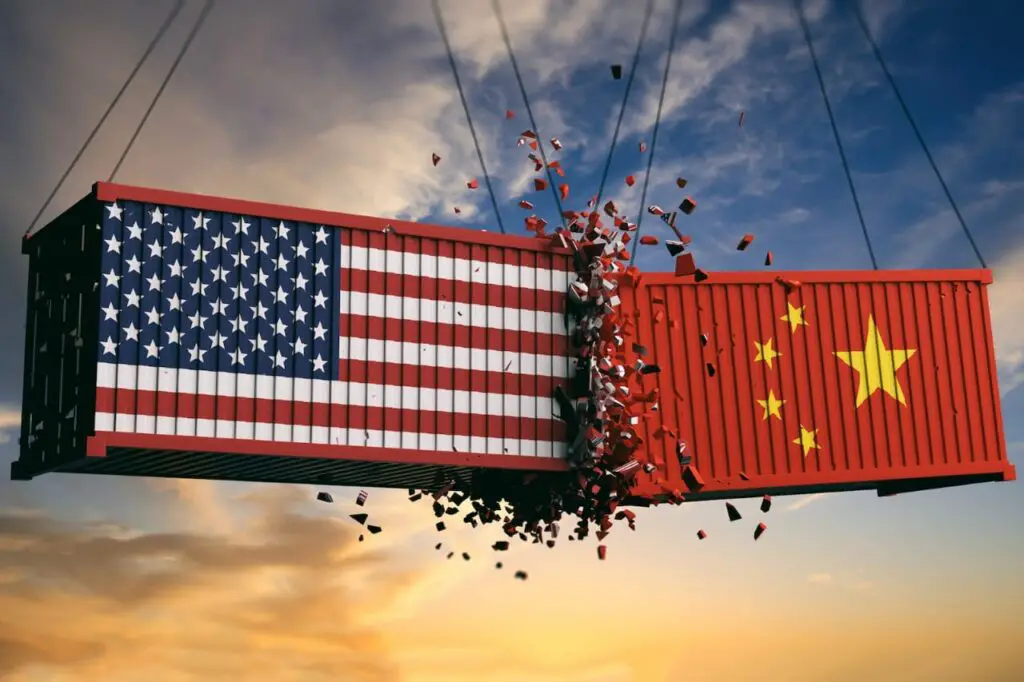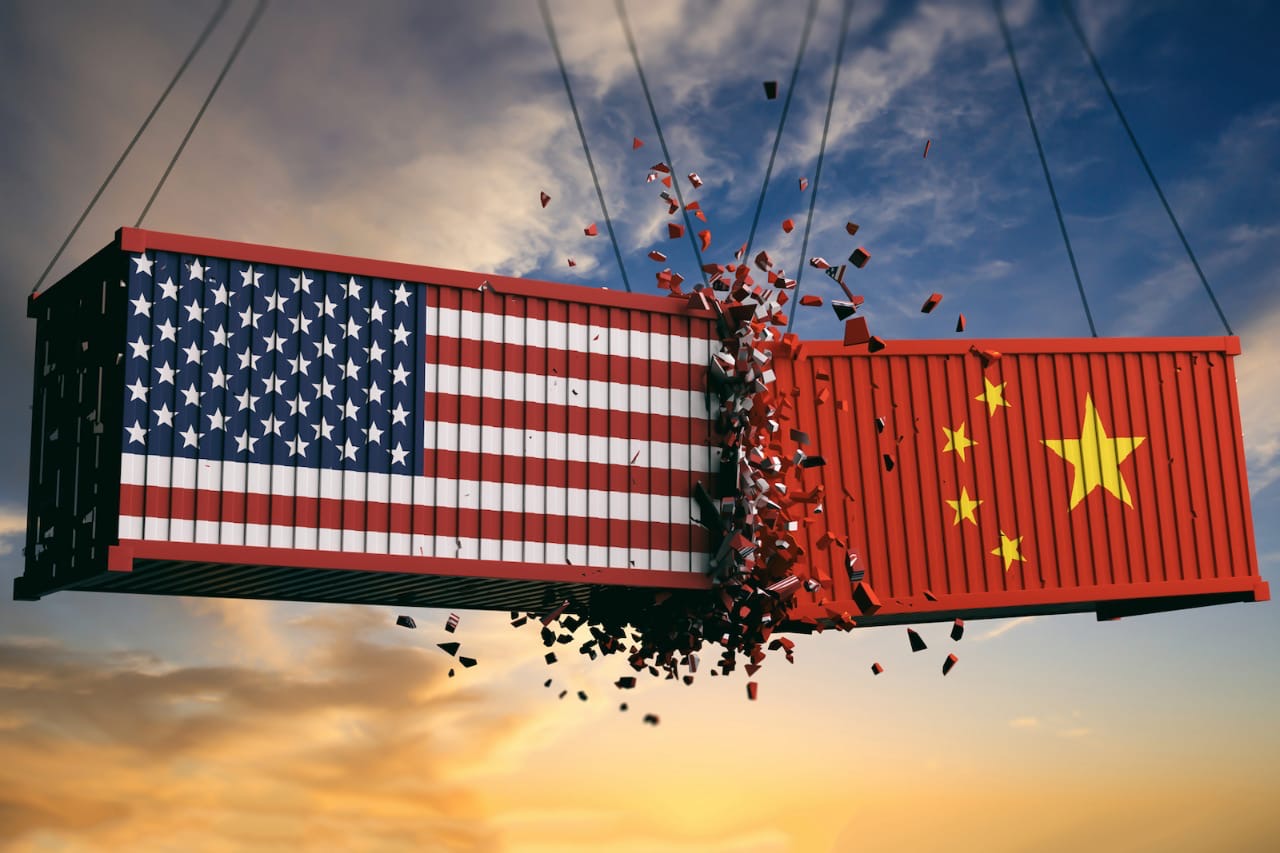China Denounces U.S. Tariffs: Blames America for Fentanyl Epidemic


China Denounces Trump Tariff: ‘Fentanyl is America’s Problem’
The relationship between China and the United States has always been complex, marked by cooperation and competition. One major point of contention between the two global powers is the issue of trade tariffs and the fentanyl crisis. Former U.S. President Donald Trump’s administration imposed tariffs on Chinese goods, citing economic and security concerns. In response, China has strongly criticized these measures and highlighted that the fentanyl problem in America is a domestic issue, not China’s responsibility.
Background on Trump’s Tariffs
During his presidency, Donald Trump introduced a series of tariffs on Chinese imports. These tariffs were part of his broader trade war strategy to reduce the U.S. trade deficit and pressure China into changing its trade practices. The tariffs covered a wide range of products, from electronics to agricultural goods, and were met with retaliatory measures from Beijing.
The U.S. justified these tariffs by accusing China of unfair trade practices, intellectual property theft, and currency manipulation. The trade war strained the economic ties between the two countries and impacted global markets.
China’s Response to Tariffs
China condemned the tariffs as unjustified and harmful to international trade. Beijing argued that these measures violated World Trade Organization (WTO) rules and disrupted global supply chains. Chinese officials emphasized that the tariffs would not only harm China’s economy but also hurt American consumers and businesses by increasing prices on imported goods.
In response, China imposed its own tariffs on American products, including soybeans, pork, and other agricultural goods. This retaliatory move hit U.S. farmers and exporters hard, leading to political pressure on the Trump administration to resolve the trade dispute.
Fentanyl and America’s Drug Crisis
Fentanyl is a powerful synthetic opioid that has contributed significantly to the opioid epidemic in the United States. The drug is 50 to 100 times more potent than morphine and has been responsible for thousands of overdose deaths in recent years. Fentanyl often enters the U.S. through illegal smuggling channels, and its widespread availability has created a public health crisis.
The Trump administration accused China of being a major source of illicit fentanyl and demanded that Beijing take stronger action to prevent the export of the drug and its precursors to the United States. In 2019, China officially banned all forms of fentanyl and pledged to crack down on its illegal production and export.
China’s Stance on the Fentanyl Issue
Despite its efforts to combat fentanyl production, China has pushed back against U.S. accusations. Chinese officials argue that America’s fentanyl crisis is largely a domestic problem driven by high demand, inadequate healthcare, and lax drug control measures within the United States.
China has emphasized that it has taken significant steps to regulate fentanyl and monitor chemical exports. Beijing maintains that it cannot be held solely responsible for America’s drug problem and that the U.S. must address the root causes of its opioid epidemic.
Link Between Tariffs and the Fentanyl Debate
The fentanyl issue became entangled in the broader trade war between the U.S. and China. Trump suggested that resolving the fentanyl crisis could be part of trade negotiations, while China viewed this linkage as inappropriate and counterproductive.
Beijing criticized the Trump administration for politicizing the drug issue and using it as leverage in trade talks. Chinese officials stated that they were willing to cooperate on drug control but would not tolerate being blamed for America’s internal problems.
Impact on U.S.-China Relations
The tariffs and the fentanyl debate have contributed to heightened tensions between the two countries. The trade war disrupted economic ties, while the fentanyl accusations added a new layer of diplomatic friction.
Despite these challenges, both nations recognize the importance of maintaining stable relations. Economic interdependence and global challenges, such as climate change and public health, require cooperation between the U.S. and China.
Possible Solutions and the Way Forward
To address the ongoing disputes, both countries need to adopt a collaborative approach. Here are some potential solutions:
- Bilateral Drug Control Cooperation: The U.S. and China can establish joint task forces to combat fentanyl trafficking and share intelligence on drug networks. This would help both countries address the opioid crisis more effectively.
- Trade Negotiations: Both nations should prioritize resolving trade disputes through diplomatic negotiations rather than imposing tariffs and retaliatory measures. A comprehensive trade agreement could benefit both economies and reduce tensions.
- Domestic Reforms in the U.S.: The United States must focus on addressing the root causes of its opioid crisis, including improving access to healthcare, expanding addiction treatment programs, and strengthening drug enforcement efforts.
- International Collaboration: The fentanyl crisis is a global issue that requires international cooperation. The U.S. and China can work together with other countries to develop comprehensive strategies for drug control and public health.
Conclusion
The dispute over tariffs and the fentanyl crisis has highlighted the complexities of U.S.-China relations. While Trump’s tariffs were intended to address trade imbalances, they inadvertently fueled diplomatic tensions over drug control and other issues. China’s stance that fentanyl is America’s problem underscores the need for domestic reforms in the U.S.
Both countries must recognize that cooperation is essential to address shared challenges. By working together, the U.S. and China can find solutions that promote economic stability, public health, and global security. The path forward requires mutual respect, open dialogue, and a commitment to resolving disputes through diplomacy rather than confrontation.










